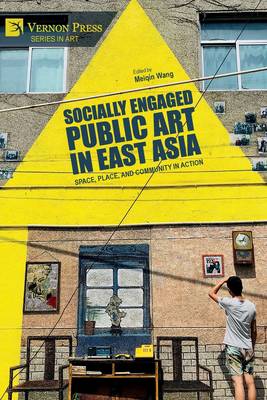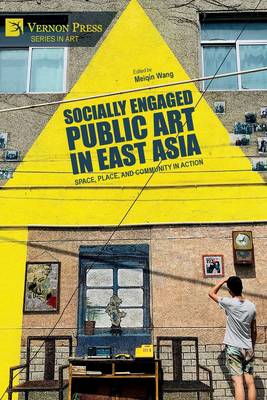
- Afhalen na 1 uur in een winkel met voorraad
- Gratis thuislevering in België vanaf € 30
- Ruim aanbod met 7 miljoen producten
- Afhalen na 1 uur in een winkel met voorraad
- Gratis thuislevering in België vanaf € 30
- Ruim aanbod met 7 miljoen producten
Socially Engaged Public Art in East Asia
Space, Place, and Community in Action
Omschrijving
This anthology elucidates the historical, global, and regional connections, as well as current manifestations, of socially engaged public art (SEPA) in East Asia. It covers case studies and theoretical inquiries on artistic practices from Hong Kong, Japan, mainland China, South Korea, and Taiwan with a focus on the period since the 2000s. It examines how public art has been employed by artists, curators, ordinary citizens, and grassroots organizations in the region to raise awareness of prevailing social problems, foster collaborations among people of varying backgrounds, establish alternative value systems and social relations, and stimulate action to advance changes in real life situations. It argues that through the endeavors of critically-minded art professionals, public art has become artivism as it ventures into an expanded field of transdisciplinary practices, a site of new possibilities where disparate domains such as aesthetics, sustainability, placemaking, social justice, and politics interact and where people work together to activate space, place, and community in a way that impacts the everyday lives of ordinary people.
As the first book-length anthology on the thriving yet disparate scenes of SEPA in East Asia, it consists of eight chapters by eight authors who have well-grounded knowledge of a specific locality or localities in East Asia. In their analyses of ideas and actions, emerging from varying geographical, sociopolitical, and cultural circumstances in the region, most authors also engage with concepts and key publications from scholars which examine artistic practices striving for social intervention and public participation in different parts of the world. Although grounded in the realities of SEPA from East Asia, this book contributes to global conversations and debates concerning the evolving relationship between public art, civic politics, and society at large.
Specificaties
Betrokkenen
- Uitgeverij:
Inhoud
- Aantal bladzijden:
- 306
- Taal:
- Engels
- Reeks:
Eigenschappen
- Productcode (EAN):
- 9781648894602
- Verschijningsdatum:
- 1/06/2022
- Uitvoering:
- Paperback
- Formaat:
- Trade paperback (VS)
- Afmetingen:
- 152 mm x 229 mm
- Gewicht:
- 412 g

Alleen bij Standaard Boekhandel
Beoordelingen
We publiceren alleen reviews die voldoen aan de voorwaarden voor reviews. Bekijk onze voorwaarden voor reviews.










